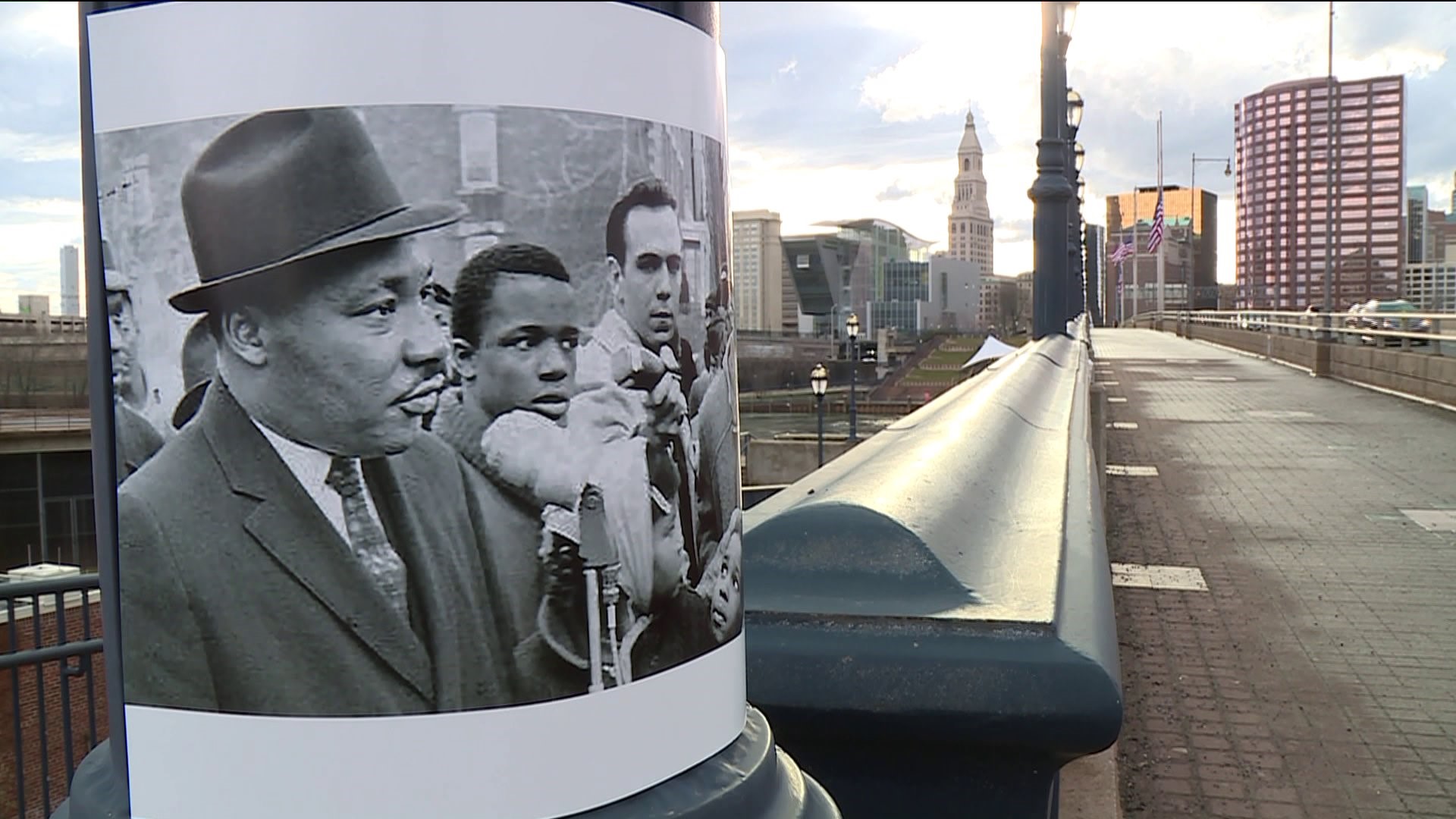SIMSBURY -- During the summer in the 1940’s, tobacco companies in Connecticut often turned to the South for labor.
Many local men were away, serving in World War II, so, recruiters in Simsbury paid black college men to harvest shade tobacco.
Dr. Martin Luther King made his first trip in with nearly 200 other students from Morehouse College, earning about $4 for a day’s work. That money helped pay their tuition.
However, King’s time in Connecticut was invaluable.
“All of these men were empowered,” said Elaine Lang with the Simsbury Historical Society.
According to Lang, King quickly took note of the freedoms he had compared to the South, where lynching still occurred, blacks were hit with high-powered hoses and children were tortured to death.
“A lot of them really found themselves energized by their experience, coming North and having a chance to move freely without fear and to really explore what life could be like,” said Lang.
Dr. King made note of his experience in Connecticut through speeches and other writings, like his autobiography and letters home.
“Yesterday we didn’t work so we went to Hardford we really had a nice time there. I never thought that a person of my race could eat anywhere but we ate in one of the finest restaurant in Hartford. And we went to the largest shows there. It is really a large city,” Dr. King wrote to his mother in 1944.
While Connecticut wasn’t free from racism, its contrast to the segregated South was stark. On the train home for instance, King was allowed to sit wherever he pleased until it reached Washington, D.C. From there, and heading to Atlanta, he had to switch to a Jim Crow car.
“The first time I was seated behind a curtain in a dining car, I felt as if the curtain had been dropped on my selfhood. I could never adjust to the separate waiting rooms, separate eating places, separate rest rooms, partly because the separate was always unequal, and partly because the very idea of separation did something to my sense of dignity and self-respect,” Dr. King wrote in his autobiography.
Dr. King also attended church every Sunday while in Connecticut. His family wanted him to attend black churches in Hartford, but, if he couldn’t make it to the city, he’d attend services in Simsbury. Dr. King even joined the choir at First Church of Christ.
“He wrote home to his mother, saying that we go to church with the white people and we all sit together in church,” said Lang.
UConn History Professor, Dr. Jeffrey Ogbar said, because of Dr.King’s education and exposure in the North, he knew this fight for civil rights was all about character.
Dr. Ogbar said he appealed to people’s morals. During protests, he wanted to see how blacks, acting civilized, were being treated, especially the most vulnerable.
“A pregnant woman could be brought to a hospital and white people at that hospital could say, she might be bleeding, she's pregnant, but we refuse to give her any medical aid because we only allow white people in this hospital,” said Ogbar.
Dr. King returned to Connecticut on several occasions later in life, but for a different line of work, fighting for equality.

